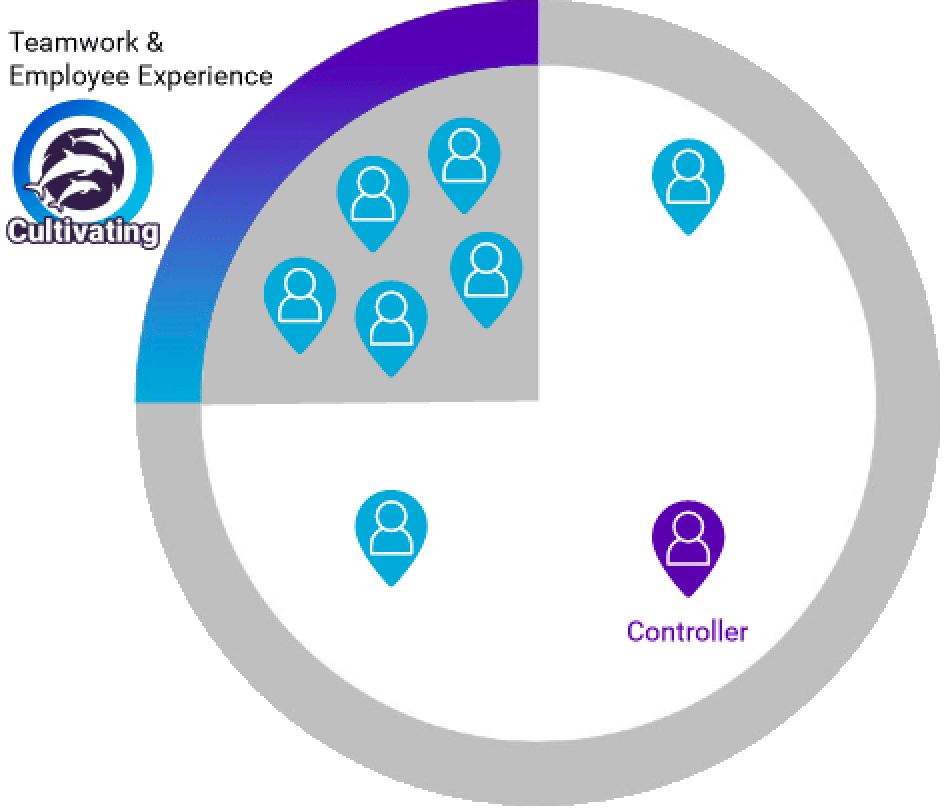Everything you need to know about a Controller
How each Reference Profile works, collaborates, and leads
Everything you need to know about an Adapter
Everything you need to know about an Altruist
Everything you need to know about an Analyzer
Everything you need to know about an Artisan
Everything you need to know about a Captain
Everything you need to know about a Collaborator
Everything you need to know about a Controller
Everything you need to know about a Guardian
Everything you need to know about an Individualist
Everything you need to know about a Maverick
Everything you need to know about an Operator
Everything you need to know about a Persuader
Everything you need to know about a Promoter
Everything you need to know about a Scholar
Everything you need to know about a Specialist
Everything you need to know about a Strategist
Everything you need to know about a Venturer
The Controller leader
Controllers are detail-oriented and conservative. So how exactly do they lead their teams to victory?
As leaders, Controllers are intently focused on creating a verified, proven matrix by which the team can measure their work to achieve the highest standards, meet all required policies and procedures, and do it on time. They are often focused on specific tasks and the technical output of the team more than personnel issues or team building activities. They work quickly and express themselves factually and thoughtfully.
Below is a list of strengths and cautions when a Controller is in a management role.
Leading strengths
- Confident
- Focused on getting the job done right
- Detail-oriented
- Fast-paced
Leading cautions
- Reluctant to delegate
- Less focused on personal aspects
- Can be demanding
- Slow to trust others
But it’s not just about knowing how you lead; you also should be aware of the individuals you manage and the Team Type they form. This allows you to tailor your leadership strategies based on the people you’re actually managing—and use your strengths as a Controller to your advantage.
Let’s say you’re a Controller who’s managing a Cultivating Team. This Team Type is on the quadrant directly opposite yours, which means you’ll generally have competing values. Don’t panic! Different personalities don’t innately lead to failure. Understanding this difference in opinions, however, is a crucial step.
Take a look below at some points of friction to be aware of. Use these to learn how you can use your strengths to lead a team that doesn’t directly align with your Reference Profile.
Leading a Cultivating Team as a Controller
When a Controller is leading a Cultivating Team, they may struggle to adapt to the team’s flexible nature. You may encounter areas of friction, but there are ways you can help your people stretch their behavioral drives and make the team feel like magic.

Friction
Benefits
The Cultivating Team’s preference for making decisions collaboratively may clash with a Controller’s fast-paced style. The leader may become frustrated that the team is taking too long to take action.
A Controller’s focus on task execution can clash with the Cultivating Team’s desire to focus on the people involved with the work. It can be frustrating for team members if they feel they’re not given the social environment they need to thrive at work.
Controllers may find themselves taking actions without considering the impact it will have on the team. Yet Cultivating Teams tend to focus on collaboration and relationship building. A Stabilizing Team can help Controllers build awareness around how decisions will impact the team and morale.
A Cultivating Team can often struggle when conflict arises. Yet Controllers are proficient in working through that conflict by focusing on the task involved. That level of objectivity can benefit the team to help not take things personally when conflict occurs.
Based on the benefits and areas of friction that can arise when having a differently aligned team, come up with strategies that will help you lean into your strengths. For example, you could create a structured process to help your team work through conflict rather than avoid it.
So, we understand who we are, where we fit into a team, and how we can lead other teams as a Controller. When it comes to leading, though, there’s much more to consider. You also need to think about what Strategy Type your team needs to accomplish their goals.
Do you feel prepared to make sure your team feels like magic rather than causing constant friction? Want to learn more? Check out our two workshops around building and cultivating teams that work like a dream.